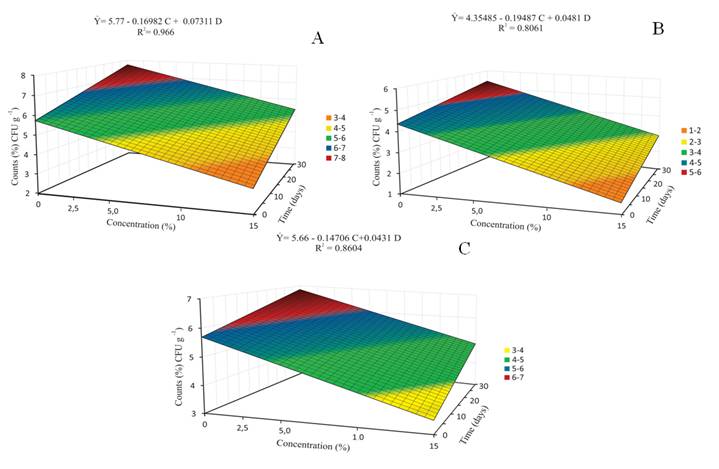ABSTRACT:
An edible coating of sodium alginate incorporated with brown propolis (2.5%, 5%, 10%, and 15%) was applied to black pepper grains to improve microbiological quality over 30 days. Gas chromatography coupled with mass spectrometry identified 29 metabolites in the extract, mainly terpene compounds (51.74%), phenolic compounds (25.83%), and flavonoids (14.48%). Brown propolis showed greater antibacterial activity for Gram-positive bacteria (MIC from 0.1 to 0.5 mg.mL-1) and lower activity for Escherichiacoli (MIC 18 mg.mL-1). A 5% increase in propolis in the coating reduced Bacilluscereus counts by 7-fold, 9.4% for Staphylococcusaureus, and 5.4% for mesophilic bacteria. The edible sodium alginate coating containing brown propolis was effective in reducing microbes on black pepper, with a concentration of 15% propolis assuring the microbiological quality of the spice after 20 days.
Key words:
natural antimicrobial; Bacillus cereus; microbiological contamination; bioactive compounds; black pepper

 Thumbnail
Thumbnail
